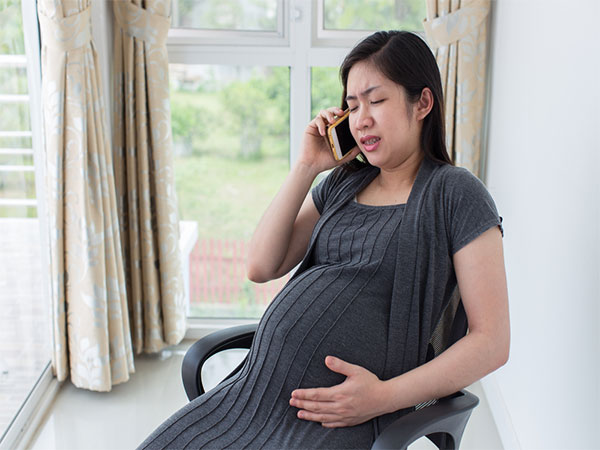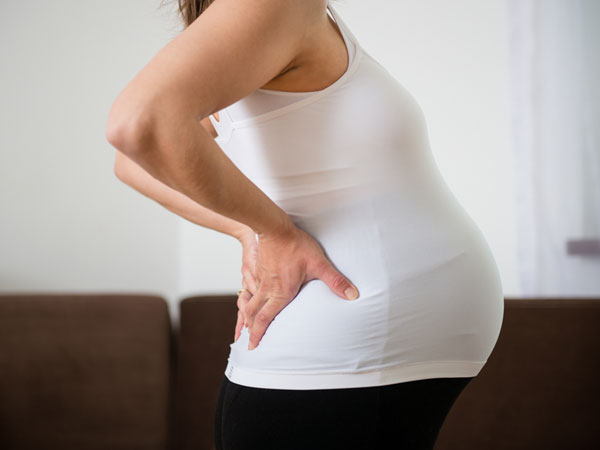Just In
- 7 min ago

- 1 hr ago

- 4 hrs ago

- 5 hrs ago

Don't Miss
- Sports
 IPL 2024: 'MI players have not bought into Hardik Pandya as the captain', Ex-India player makes shocking claims
IPL 2024: 'MI players have not bought into Hardik Pandya as the captain', Ex-India player makes shocking claims - Finance
 Google CEO Sundar Pichai Terminates Over 20 Employees Amidst Internal Protests Over Israel; Reports
Google CEO Sundar Pichai Terminates Over 20 Employees Amidst Internal Protests Over Israel; Reports - Education
 Meet Naima Khatoon, First Vice Chancellor of AMU, Know Her Background and Education Qualification
Meet Naima Khatoon, First Vice Chancellor of AMU, Know Her Background and Education Qualification - News
 Delhi-NCR Welcomes Sudden Weather Change: Rain Brings Relief From Heat, Watch Video Here!
Delhi-NCR Welcomes Sudden Weather Change: Rain Brings Relief From Heat, Watch Video Here! - Movies
 Vijay Deverakonda Attends His Security Guard's Wedding; VIRAL Video Makes Fans Dub Actor 'Humble & Great'
Vijay Deverakonda Attends His Security Guard's Wedding; VIRAL Video Makes Fans Dub Actor 'Humble & Great' - Technology
 Xiaomi Robot Vacuum Cleaner S10, Handheld Garment Steamer, and Redmi Buds 5A Launched in India
Xiaomi Robot Vacuum Cleaner S10, Handheld Garment Steamer, and Redmi Buds 5A Launched in India - Automobiles
 Nissan Magnite Achieves 1 Lakh Unit Sales Milestone: Consistency Helps
Nissan Magnite Achieves 1 Lakh Unit Sales Milestone: Consistency Helps - Travel
Kurnool's Hidden Gems: A Guide To Exploring India's Lesser-Known Treasures
Handling Pelvic Pain During Pregnancy
The topic of pregnancy creates fervour among women. Though women look forward to holding their baby for the first time after nine long months, they wish they could without the problems and pain associated with the phase.
Every woman's body reacts differently during pregnancy. Some women experience certain symptoms, which other women have no idea about.
That is why there is a lot of confusion and myths that prevail about pregnancy.
During pregnancy, the internal organs of a woman move slightly to accommodate the growing baby in the womb.

This creates numerous problems for the mother, which results in gastric issues, constipation, frequent urination, acid reflux, heart burn etc.
By the second trimester, the uterus reaches the rib cage. The baby movements increase during this time, creating a nightmare for mothers, as the baby kicks around and about almost everywhere.
There is extra pressure on the kidneys too, which has to filter the waste materials from the baby as well. The skin stretches beyond its capacity as the months pass by, resulting in the formation of stretch marks.
Hyper pigmentation also takes place at certain areas in the body, usually because of the hormonal changes.
The abdomen area is the most affected during pregnancy. Apart from all of the above-mentioned changes, women experience back pain and pelvic pain during the second and third trimesters.
The spinal curvature re-aligns itself to accommodate the baby. And that is why, back pain is a common issue among pregnant women.
Though all women are familiar with back pain, pelvic pain is what concerns them the most.

What Is Pelvic Pain?
Pelvic pain is the uncomfortable feeling around the pelvic joints, which pregnant women mostly confuse with labour pains. It is also called pregnancy-related pelvic girdle pain (PPGP).
This is completely different from labour pain. Though it is not harmful for the baby, it certainly makes life difficult for the mother.
How Is Pelvic Pain Caused?
As the baby grows, it moves towards the pelvis, pressing against your bladder hips and pelvis. This causes heavy load on your pelvic joints, causing pain.
This pain can restrict your movements like walking, going upstairs or standing on one leg when changing clothes etc. Therefore, it is very important to manage the pain.
Here are a few ways in which you can manage pelvic pain, and stop it from affecting you too much.

1) Pelvic Exercises:
If you visit your gynaecologist regarding pelvic pain, first thing they'd do is recommend you some exercises that relax your hips. These exercises help you to relax your pelvic muscles and ease the pain. Following the techniques regularly under strict guidance from your instructor, it can help you ease the pain to a great extent.
2) Acupuncture:
This method is getting increasingly popular with pregnant ladies, as being effective in reducing most of the pain related to pregnancy. Getting an expert acupuncturist will certainly help you reduce the pain and make the pregnancy phase easier for you.

3) Warm Bath:
A warm bath is an answer to most of your pregnancy-related pain. Try relaxing in a bathtub filled with warm water when you experience pain in your pelvic area. Relaxing in a tub full of water will help the baby shift away from your pelvis for some time, relieving you of the pain.
4) Belly Sling:
Equipment such as crutches or a belly sling will help support the weight of your stomach and give some relief to the pelvic muscles. Pelvic support belts too give a great support in such cases.
5) Rest:
When you begin to experience pelvic pain, it is wiser to immediately leave all chores and lie down, sleep even. Continuous stress on the pelvic muscles will elevate the pain. When you are in pain, it is just that your body is trying to tell you something. Listen to it and relax. Your body will thank you for it.
It is, however, important to note that pelvic pain should not be confused with labour pain. Pelvic pain usually occurs in the second trimester for women, while some don't experience it until the end of third trimester.
Usually pelvic pain will go away if you avoid continuous physical work and lie down. Not panicking is equally important. Try to understand what is causing the pain and avoid those positions as much as possible.
Do remember never to take painkillers without the advice of your gynaecologist, as they may be extremely dangerous for your baby.
Also, your family's support is extremely important during such cases. Having close ones near you will keep you at peace, and so will your baby!
-
 diet fitnessKegel Exercises For Men & Women: How To Do, Benefits & Caution
diet fitnessKegel Exercises For Men & Women: How To Do, Benefits & Caution -
 basicsHow Can Pelvic Inflammatory Disease Affect Pregnancy?
basicsHow Can Pelvic Inflammatory Disease Affect Pregnancy? -
 wellnessSigns Which Indicate That Your Bloating Isn't Normal
wellnessSigns Which Indicate That Your Bloating Isn't Normal -
 wellnessBest Natural Solutions For Pelvic Infection In Women
wellnessBest Natural Solutions For Pelvic Infection In Women -
 wellnessVishnuasana (Lying Down On Sides) For Stretching Pelvic Joints
wellnessVishnuasana (Lying Down On Sides) For Stretching Pelvic Joints -
 wellnessWhat Kind Of Heart Pain Is Serious? How Do You Know If Chest Pain Is Heart Pain?
wellnessWhat Kind Of Heart Pain Is Serious? How Do You Know If Chest Pain Is Heart Pain? -
 healthWhy Does A Breakup Hurt? Is The Physical Pain Real Or Just In Your Head?
healthWhy Does A Breakup Hurt? Is The Physical Pain Real Or Just In Your Head? -
 healthHow To Get A Slipped Disc Back In Place?
healthHow To Get A Slipped Disc Back In Place? -
 health4 Common Myths About Arthritis Debunked!
health4 Common Myths About Arthritis Debunked! -
 healthYour Kitchen Holds the Secrets to Winter Knee Pain Relief
healthYour Kitchen Holds the Secrets to Winter Knee Pain Relief -
 wellnessDid You Know Your Own Blood Can Be Used For Pain Relief?
wellnessDid You Know Your Own Blood Can Be Used For Pain Relief? -
 wellness5 Bizarre Home Remedies For Pain Relief: Read It To Believe It!
wellness5 Bizarre Home Remedies For Pain Relief: Read It To Believe It!


 Click it and Unblock the Notifications
Click it and Unblock the Notifications



